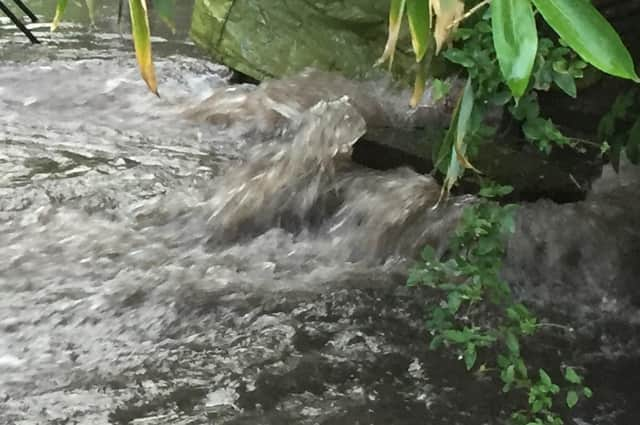Raw sewage dumped into Harborough's waterways 479 times in the space of just one year


Raw sewage was dumped into Harborough's waterways 479 times in the space of just one year.
That equates to a total of 2,743 hours throughout 2022.
Recently released data has revealed how much raw sewage was dumped across Leicestershire over 12 months - and it does not paint a pretty picture across the county.
Advertisement
Hide AdAdvertisement
Hide AdFigures published by the Environment Agency have revealed that raw sewage was dumped into our county's waterways for a total of 48,762 hours throughout 2022. The research also found that 7,082 sewage dumping events took place across all constituencies throughout Leicestershire over the 12 months.
These events see untreated waste water released into bodies of water when systems become overwhelmed, often caused by heavy rainfall, blockages or unexpected equipment failures.
The Rutland and Melton constituency was found to have the highest amount of sewage dumping events take place in Leicestershire. A total of 2,397 sewage spills took place in the constituency, which includes Rutland Water reservoir.
North West Leicestershire also saw high numbers of raw sewage dumps. A total of 1,283 took place in the constituency during 2022, lasting for more than 11,804 hours.
Advertisement
Hide AdAdvertisement
Hide AdHarborough was the fifth worst performer in the table of the ten county constituencies.
Severn Trent Water is the main water company that covers Leicestershire and the rest of the Midlands. In response to the recent figures, a spokesperson said: “In the last year we’ve reduced our impact on rivers by a third, and according to latest Environment Agency data Severn Trent currently accounts for 16 per cent of reasons rivers in the Midlands not achieving good ecological status, with the remaining 84 per cent down to other factors.
“We have committed that our operations will not be the reason for any stretch of river in the whole Severn Trent region to be classified as unhealthy by 2030 and we’re continuing to invest £100m a year to go even further in improving river quality, including the installation of 100 per cent of monitor coverage across the region.
"We’re consistently recognised for our industry leading performance, receiving the highest four-star rating by the Environment Agency, and are committed to being open and transparent about our performance and our plans.”